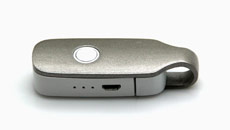How often have you recommended a product to your friends and acquaintances on Facebook? Most likely, not very often. And what stopped you is a fear of social censorship, claims a new research.
Researchers have found that users of social media websites are less likely to use them to say positive things about their favourite products and services.
Instead, they are more likely to express their opinions about products in intimate face-to-face social situations.
This is because most users usually have a wide range of "friends" or "followers" on social media sites, outside of their immediate family and friends, which deters them from expressing their opinions as they feel more vulnerable to adverse comments.
"Social media web sites such as Facebook have completely revolutionised the way we share information and communicate with each other. But when it comes to sharing recommendations on products and services on these sites, users tend to stay quiet," said Andreas Eisingerich from Imperial College Business School in Britain.
"They would rather communicate via word of mouth because many users do not want to embarrass themselves online as work colleagues or acquaintances may not endorse or appreciate the same products that they do," Eisingerich added.
In the study, the researchers surveyed 407 participants in labs and face-to-face surveys to find out how they communicated about their favourite brands.
They found that users are reluctant to endorse products on social media sites due to the perceived risk that they could embarrass themselves if their views are not endorsed or shared by others.
The findings appeared in the Journal of Consumer Psychology.





